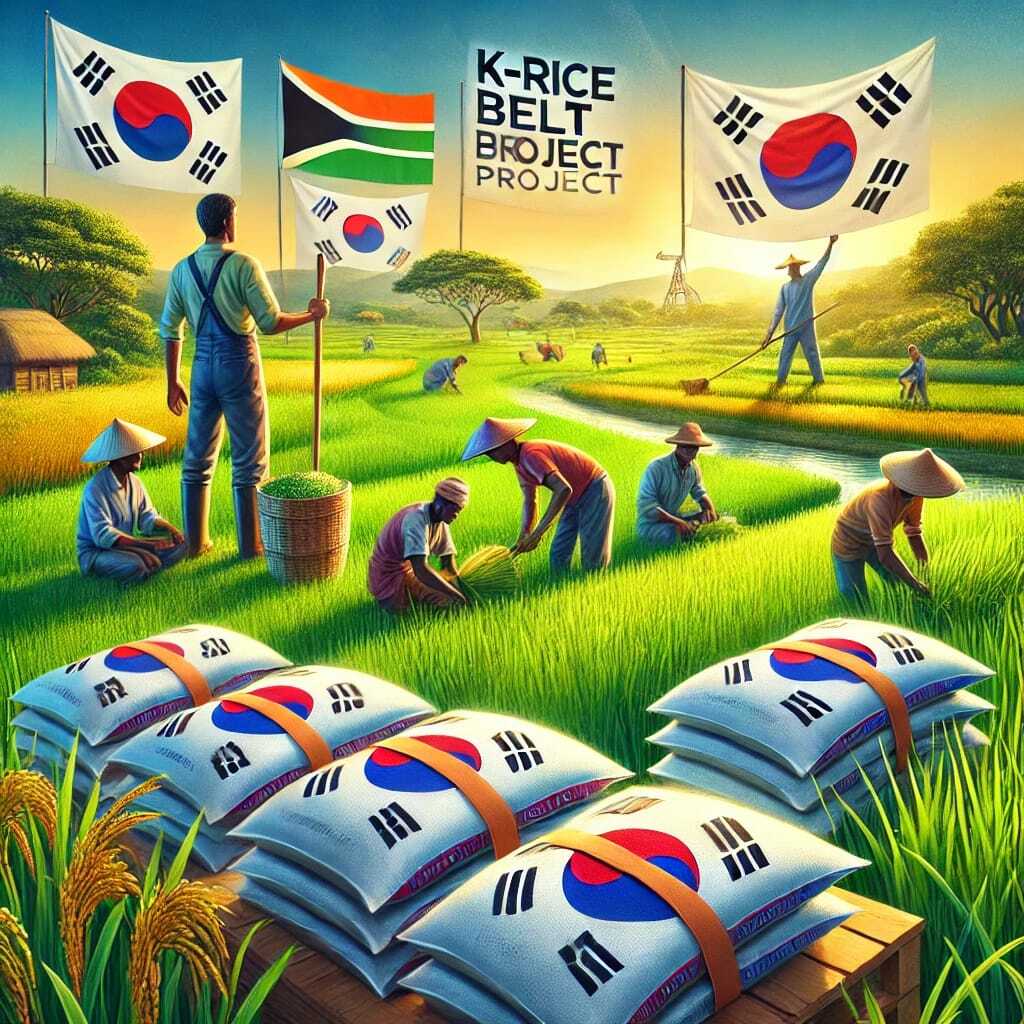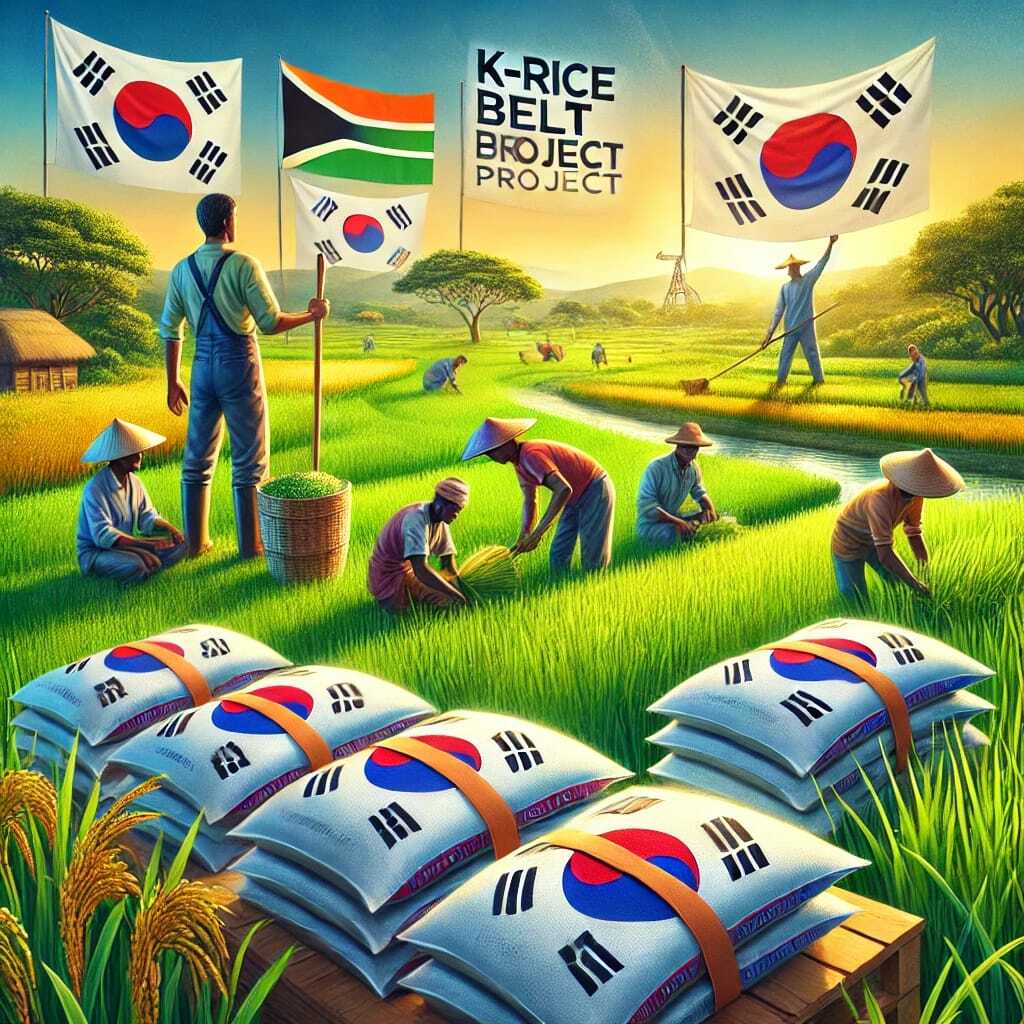K-Rice Belt Project Boosts Rice Seed Production in Africa by 20%, Surpassing Expectations

The K-Rice Belt project, led by South Korea’s Ministry of Agriculture, Food and Rural Affairs, significantly increased rice seed production in Africa, exceeding initial targets. In 2023, the project produced 3,562 tons of rice seeds across seven African nations, 20% more than the target of 3,000 tons.
The K-Rice Belt aims to establish rice seed production complexes in African countries, distributing high-yield rice seeds to local farmers. Uganda led production with 1,765 tons, followed by Ghana (689 tons), Guinea (640 tons), Senegal (267 tons), Gambia (146 tons), Kenya (31 tons), and Cameroon (24 tons).
This achievement marks a 53% increase from the previous year’s 2,321 tons and an 8% rise in average productivity to 4 tons per hectare. The harvested seeds will be distributed to local farmers, with surplus allocated to vulnerable communities.
The success of the K-Rice Belt has generated interest from additional countries, including Sierra Leone, Côte d’Ivoire, and Guinea-Bissau. Pilot projects in these nations confirmed the high adaptability and superiority of K-variety rice, praised for its disease resistance, ease of management, and superior taste.
The Ministry plans to expand the project to southern Africa, signing MOUs with Madagascar, Malawi, Zimbabwe, and Angola. The initiative will also integrate seed production with support for rice processing, distribution, and rural development.
Jeong Hye-ryeon, Director General for International Cooperation, highlighted that the project’s success serves as concrete evidence of its effectiveness and expressed hope that the model could alleviate food insecurity and boost South Korea’s international reputation.
Follow & Subscribe:
👉 Africa Agri Market on LinkedIn for the latest updates and insights.
🌐 Visit us at www.africa-agri-market.com for more information!
